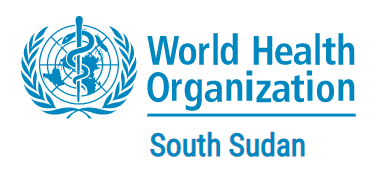In preparation for the rollout of the new Business Management System (BMS), WHO Office in South Sudan conducted a five-day BMS Human Capital Management (HCM) Lab to familiarize staff with WHO’s new BMS, which will replace the current GSM-based system to enhance efficiency and streamline operations.
The interactive session conducted from 30 June to 4 July 2025, successfully engaged over 189 staff members, giving them practical hands-on experience with the HR BMS module through simulation exercise, enabling participants to test BMS features, fostering clear understanding of the system. As a result, staff members are now better equipped to use this module designed to streamline and simplify HR-related processes.
Facilitated by the Country Support Unit (CSU), the sessions provided insights on how the BMS system is configured and will be running after roll-out.
Ms. Sheila Baya, a Public Health Officer, and one of the participants shared her experience. “Initially, I thought the BMS HR module was quite complex, especially, since we, as an affiliate, currently manage leave requests manually. However, after spending some time exploring the platform, I’ve come to appreciate its user-friendly design. I now understand how it will streamline our internal request processes, making them more systematic and efficient. This transition will not only save time but also reduce the potential for errors, ultimately improving our overall workflow”. Said Baya
Dr Mukeshkumar Prajapati, Health Cluster Coordinator and another participant, added “The BMS User Experience Lab was more than just a demo—it was an empowering, hands-on opportunity that showed me how workday can simplify our day-to-day HR tasks” said Dr Prajapati, “Exploring real-life scenarios gave me confidence in its potential to streamline processes like leave requests, personal data management, and profile updates.”
Furthermore, Ms. Ida Mkenda, encouraged colleagues to take up the opportunity, saying “The immersive modelling tasks and scenarios enabled me to intuitively navigate and accomplish requests in the BMS. Integration of the various functionalities in the organization has also simplified processes that will greatly impact efficiency and effectiveness” said Mkenda
Finally, Mr. Kuol Maper Alier, another participant, thanked WHO for initiating the BMS system “this system is easy to use, and it is timesaving. I enjoyed the simulation exercise and looking forward for the rollout of BMS” Alier said.
As the BMS continues to roll out across the region, Dr Humphrey Karamagi, WHO Representative for South Sudan encourages all staff to participate in ongoing and future labs to acquire hand on experience and contribute to shaping a future where digital tools drive better performance, accountability, and impact. “All of us are encouraged to take the opportunity to explore the BMS system, identify possible defects, and recommend appropriate improvements to ensure the system is user-friendly”
Distributed by APO Group on behalf of World Health Organization (WHO) – South Sudan.



